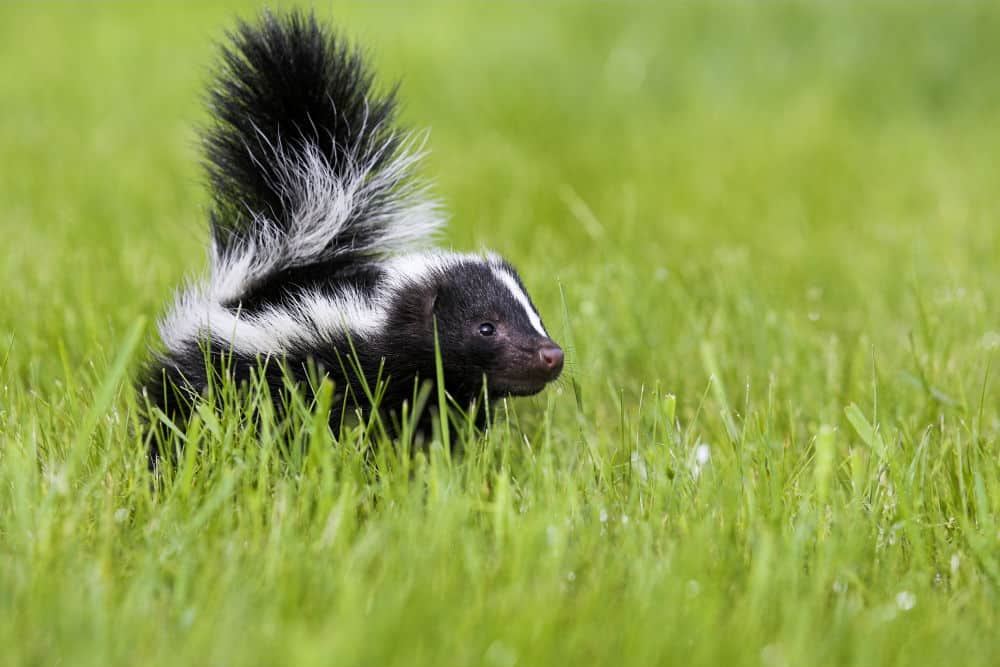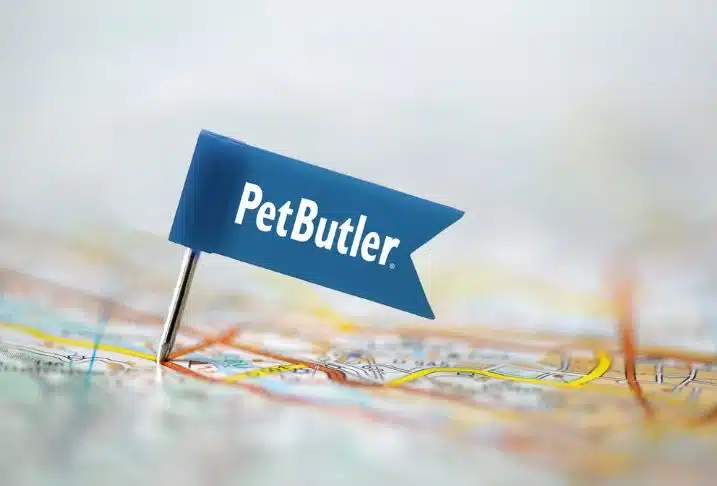What’s black and white and strikes fear into the hearts’ of dog owners? Skunks! If your dog spends time outdoors there is a good chance it will get sprayed by a skunk, or come close to one at least once during their lifetime. Keep on reading to learn why skunks spray and what you can do if your dog gets sprayed by a skunk!
Skunk Odor and Getting Rid of It
If you have taken steps to avoid getting skunked but still end up in the unenviable position of cleaning up the aftermath, there are a few things to know about bathing your dog after getting sprayed by a skunk. Skunk secretions are made up of oils that become fouler smelling when your dog is wet. It’s not just your imagination; it’s actually the chemical compounds that make up the oils converting into more noxious products.
The thiols and thioacetates readily bind with skin proteins and can cause tearing, temporary blindness, nausea and vomiting if swallowed or sprayed into your pet’s eyes. Call your veterinarian if your dog is especially distressed or in pain as they can permanently damage their delicate corneas if not properly treated. Rinsing eyes with copious amounts of cool water may be enough to prevent serious injury.
Understanding the make-up of skunk spray has helped develop effective remedies. Oils on the fur and skin can only be broken down and washed away using a detergent and the chemicals must be converted into less stinky compounds. Tomato juice and vinegar, sadly, are not helpful.
Over-the-counter products such as Nature’s Miracle Skunk Odor Remover and Thornell’s Skunk-Off shampoo are wonderful to keep on your shelf if you have an inquisitive hound. Unfortunately, many skunk encounters happen during early morning or late evening excursions when pet stores are likely closed.
Why do Skunks Spray?
Their tell-tale smell is emitted from scent glands under the tail and secreted when they are startled or defending themselves. Though getting “skunked” can happen to you or your dog in the blink of an eye, skunks often hiss, stamp their feet, or growl as a warning before spraying their scent. Some experts believe they are able to hit a target within 15 feet!
Not only is the odor pungent and long-lasting, but skunks can carry diseases such as rabies and leptospirosis. It’s important to discourage their presence around your family and pets by eliminating any food sources, blocking access to underground hideaways, and ironically, using sweet-smelling citrus peels, ammonia soaked rags, or predator urine (or commercially available equivalent) as a deterrent. Skunks usually emit their scent directly in the face or your curious or protective dog.
Skunks tend become relatively inactive during the coldest months, preferring to commune underground to keep warm. In February and March, skunks typically mate, and spend more time looking for food such as berries, grubs, grains, seeds, and other insects at dusk, dawn and during the nighttime.
They aren’t opposed to snacking on garbage, compost heaps, or other food sources humans may have intended to feed birds or other wildlife. Skunks make their den and rear their young in burrows underground but are opportunistic and will happily reside underneath a front stoop or window well if left undisturbed.
Deskunking Your Dog
Here’s a DIY dog shampoo if your dog gets sprayed by a skunk. Head to your medicine cabinet or the local convenience store for:
- 1 quart of 3 % hydrogen peroxide.
- 1 tsp of dishwashing detergent and
- ¼ cup of baking soda.
Mix the ingredients in a bowl and use rubber gloves to saturate and scrub your pet’s fur. Don’t leave this solution on your dog for too long, as the peroxide may discolor fur. Though much of the scent may be concentrated near your pet’s head, avoid the delicate eye area. Rinse thoroughly, and then wash your dog again, but with their regular pet shampoo.
Keep an eye on your furry friends as their outdoors this season!

